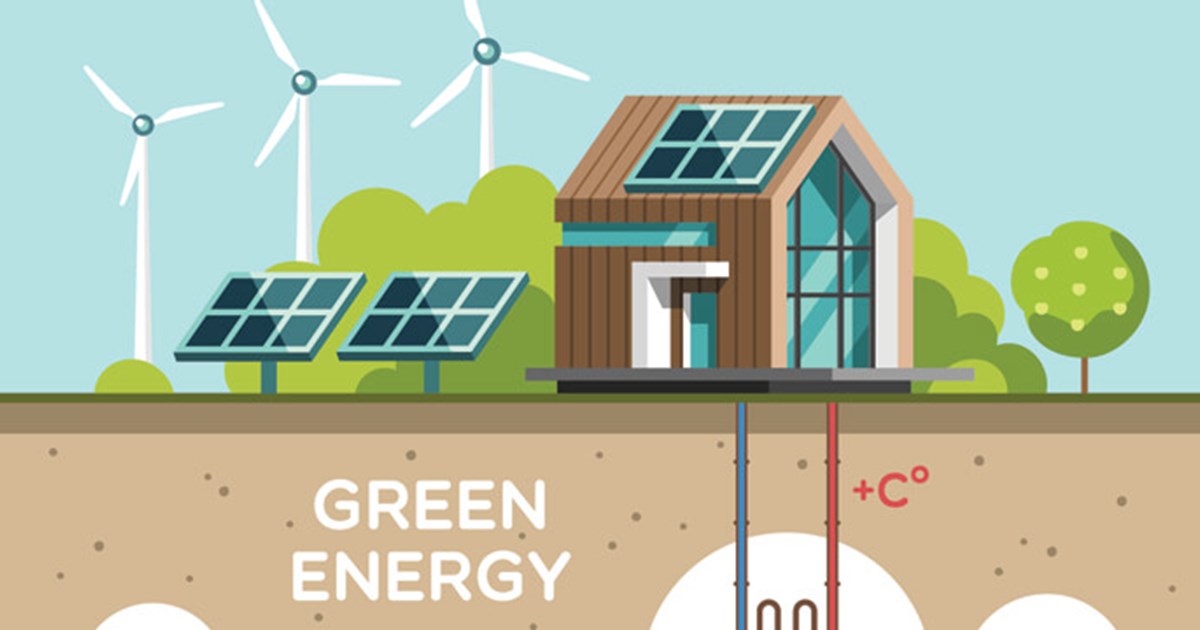Renewable energy options

With the world energy market experiencing hyperinflation and shortages the renewable energy industry continues to increase its pace of expansion and becomes ever more important. We at Greenerguide thought it would be helpful to detail some of the best renewable energy solutions for residential properties. There are many options to help green your home and reduce running costs. Many of the options and the different technologies benefit from each other. For example, heat pumps, electric car chargers and battery storage devices pair well with solar panels as the solar panels and battery storage help to offset the electricity required to run heat pumps and electric cars.
The Technologies:
Solar Photovoltaic Panels
In the UK the average household, with a single-phase electricity supply, can install approximately 4kW of solar panels without planning permission. Households who are lucky enough to have a three-phase supply can almost treble the amount of PV without planning or DNO permission. Costs vary depending on installation requirements but generally you can install 4kW for £7,000 or less. With current electricity prices the payback for the panels alone is approximately 5 years. If combined with other technologies, as discussed below, this might be even less. It is also important to remember that if you are using, or considering using, a heat pump to heat your house, solar panels will partly offset your heating costs in the winter and probably give you free hot water in the summer and free pool heating if you are fortunate enough to have a swimming pool. Installing solar panels helps to remove your reliance on using electricity from the grid, therefore reducing the pressure on the grid to produce electricity using fossil fuels to meet demand. Simply using wasted space on your roof can be the most effective renewable solution.
Heat Pumps
There are two types of commonly used heat pumps: ground source heat pumps and air source heat pumps. Heat pumps are destined to replace boilers as the world turns to renewable solutions. Heat pumps work by extracting heat from the ground, in the case of a ground source heat pump, or from the air in the case of an air source heat pump. The temperature taken by the heat pump from the ground or air is raised by a compressor and that energy is then used to heat the residential property and provide hot water. For every unit (kilowatt-hour) of electricity used to power the heat pump, about three or four units of energy is extracted from the ground or air. This will drastically reduce carbon emissions and can be the perfect solution for properties. The technology has improved in the past decade to the point that heat pumps can now heat up to temperatures of 70°C (if required) very efficiently, which is a similar temperature to those produced by harmful gas or oil boilers. All heating and hot water needs can be easily met and the cost of heating is between three and five times lower than using electricity for heating and 50% lower than burning oil. Further the UK government offers grants of £5,000 to subsidise the cost of installing an air source heat pump and £6,000 for a ground source heat pump. The decision as to which type of heat pump is best for your particular situation depends on many factors. The cost of installing a heat pump is higher than simply replacing a gas or oil boiler with a new one. That is why the Government offers the subsidy grants. Typically, though when grants are included the payback of installations is normally around seven to twelve years. It can be much quicker if Solar PV is taken into account. We can help you make an informed decision. Simply complete the Greenerguide Questionnaire and we will advise and even recommend suitable partners who we know do a good job of installing the chosen equipment.
Battery Storage and Vehicle Car Chargers
If the opportunities in installing of PV Panels and heat pumps are not exciting enough, then the benefits can be turbocharged by installing battery storage and an electric car charging point. Battery storage will enable you to extend the benefits of PV by storing the energy for use after the sun has stopped shining. Once the sun sets PV Panels stop working! with a battery storage system the sun’s energy is stored to be used at night thereby utilising free energy for longer. Likewise, as electric cars become the norm, using your PV Panels to charge your car means that your can effectively runs on free-fuel and uses no energy from the grid. A WIN WIN!